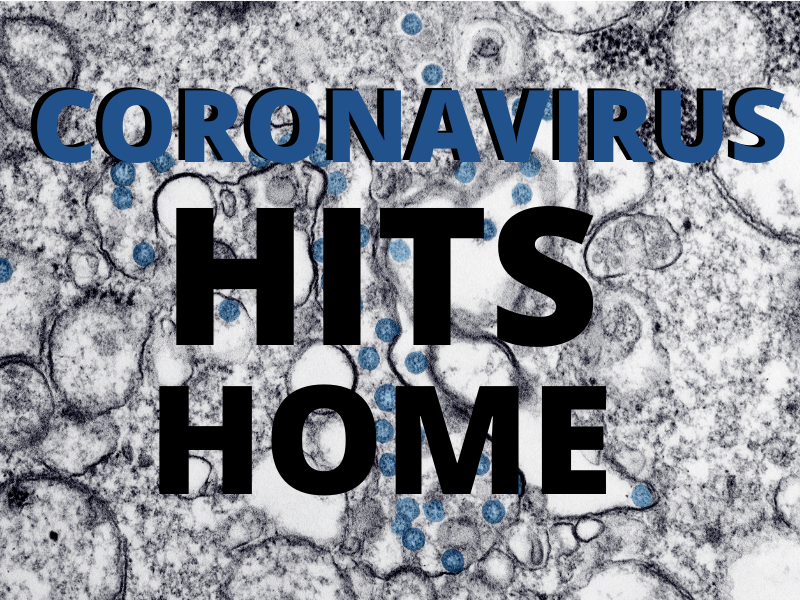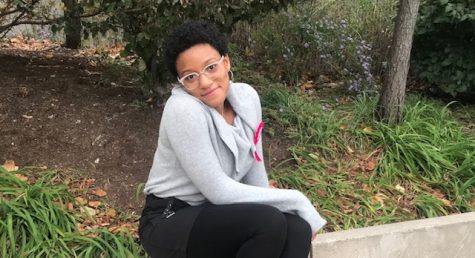What has dominated headlines since January has officially hit St. Louis County as the first case of the coronavirus, known officially as COVID-19 is confirmed. After family members of an infected person attended a school function, citizens across St. Louis found themselves at risk. This has reverberated into our community, as schools and businesses shut down.
The Centers for Disease Control and Prevention (CDC) finds that there are three main symptoms that can be seen between two and 14 days after exposure––fever, cough, shortness of breath. Reported illnesses have ranged from mild symptoms to severe illness for confirmed COVID-19 cases. 
“[Remember to] wash your hands. If you’re feeling sick with the symptoms, call your doctor. Call before you go anywhere for care, and stay home,” school nurse Lois Burch said.
Countries are taking high measures to prevent and halt the spread of the disease by shutting down schools and canceling some travel.
“I was going to Saudia Arabia for something called an Umrah, it’s a pilgrimage that you can go to anytime during the year. Saudia Arabia suspended certain countries from coming in because of the virus so we just canceled our whole trip,” junior Dana Abdulnabi said. “I was actually really devastated because this would’ve been my first time going and I was really excited.”
In her third semester of college, alumna and current student at Kent State University student Haley Tiepleman was studying abroad in Florence, Italy when she was sent home due to confirmed cases in Milan, Italy.

“I was supposed to be there until the second week of May. I got there in January. One of my best friends [came home as well], both of our parents decided to call it before the school did,” Tiepleman said.
News of this virus spreads fast, yet there are many misconceptions as to how dangerous it is and how we should approach it ourselves.
“When my friends and I would talk about it while we were still in Italy, it just seemed like the media was making things seem much scarier than they were. People in Italy were still living life as normal so it made it even more frustrating that we felt like we were being sent back for something that seemed like it was not much different than the flu,” Tiepelman said.
Although there is no vaccine for this virus, there are many ways to avoid getting this virus.
“Wash your hands often with soap and water, if soap and water are not readily available, use an alcohol-based hand sanitizer with at least 60% alcohol. Avoid close contact with people who are sick, stay home when you are sick,” the CDC advises.
Moving forward, steps are being taken by medical officials to stop any further cases and, as for us, we must continue to take care of ourselves to minimize any more sickness being spread.
“I personally think that it will get better,” Abdulnabi said. “I hope that my family will be able to go on this trip because we have been planning this for so long and you just don’t know if you will ever be able to go.”
For more information refers to linked content.





![Smiling in a sea of Longhorns, Fox 2 reporter Ty Hawkins joins junior Darren Young during the morning Oct. 3 pep rally. The last time West was featured in this segment was 2011. “[I hope people see this and think] if you come to [Parkway] West, you will have the time of your life because there are so many fun activities to do that make it feel like you belong here. I was surprised so many people attended, but it was a lot of fun,” Young said.](https://pwestpathfinder.com/wp-content/uploads/2025/10/Edited2-1200x798.jpg)
![West High seniors and families listen as a representative of The Scholarship Foundation of St. Louis, Teresa Steinkamp, leads a Free Application for Federal Student Aid (FAFSA) workshop. This session, held in the library, provided guidance on financial aid, scholarships and student loan options. “This event is very beneficial for any seniors who are applying to or considering applying to colleges after high school [because] the cost of college is on the rise for seniors and parents,” college and career counselor Chris Lorenz said.](https://pwestpathfinder.com/wp-content/uploads/2025/09/DSC_4478-1200x778.jpg)
![Senior Kamori Berry walks across the field during halftime at the Homecoming football game on Sept. 12. During the pep assembly earlier that day, she was pronounced Homecoming Queen. “I thought it was nice that the crowd [started] cheering right away. I know [my friends] were really excited for me, and my family was happy because typically non-white people don't win,” Berry said.](https://pwestpathfinder.com/wp-content/uploads/2025/09/DSC7046-Enhanced-NR-1200x798.jpg)



![Pitching the ball on Apr. 14, senior Henry Wild and his team play against Belleville East. Wild was named scholar athlete of the year by St. Louis Post-Dispatch after maintaining a high cumulative GPA and staying involved with athletics for all of high school. “It’s an amazing honor. I feel very blessed to have the opportunity to represent my school [and] what [it] stands for,” Wild said.](https://pwestpathfinder.com/wp-content/uploads/2025/05/unnamed-6-1200x714.jpg)
![The Glory of Missouri award recipients stand with their certificates after finding out which virtue they were chosen to represent. When discovering their virtues, some recipients were met with contented confirmation, while others, complete surprise. “I was not at all surprised to get Truth. I discussed that with some of the other people who were getting the awards as well, and that came up as something I might get. Being in journalism, [Fellowship of Christian Athletes and] Speech and Debate, there's a culture of really caring about truth as a principle that I've tried to contribute to as well. I was very glad; [Truth] was a great one to get,” senior Will Gonsior said.](https://pwestpathfinder.com/wp-content/uploads/2025/04/Group-Glory-of-Missouri.jpg)

